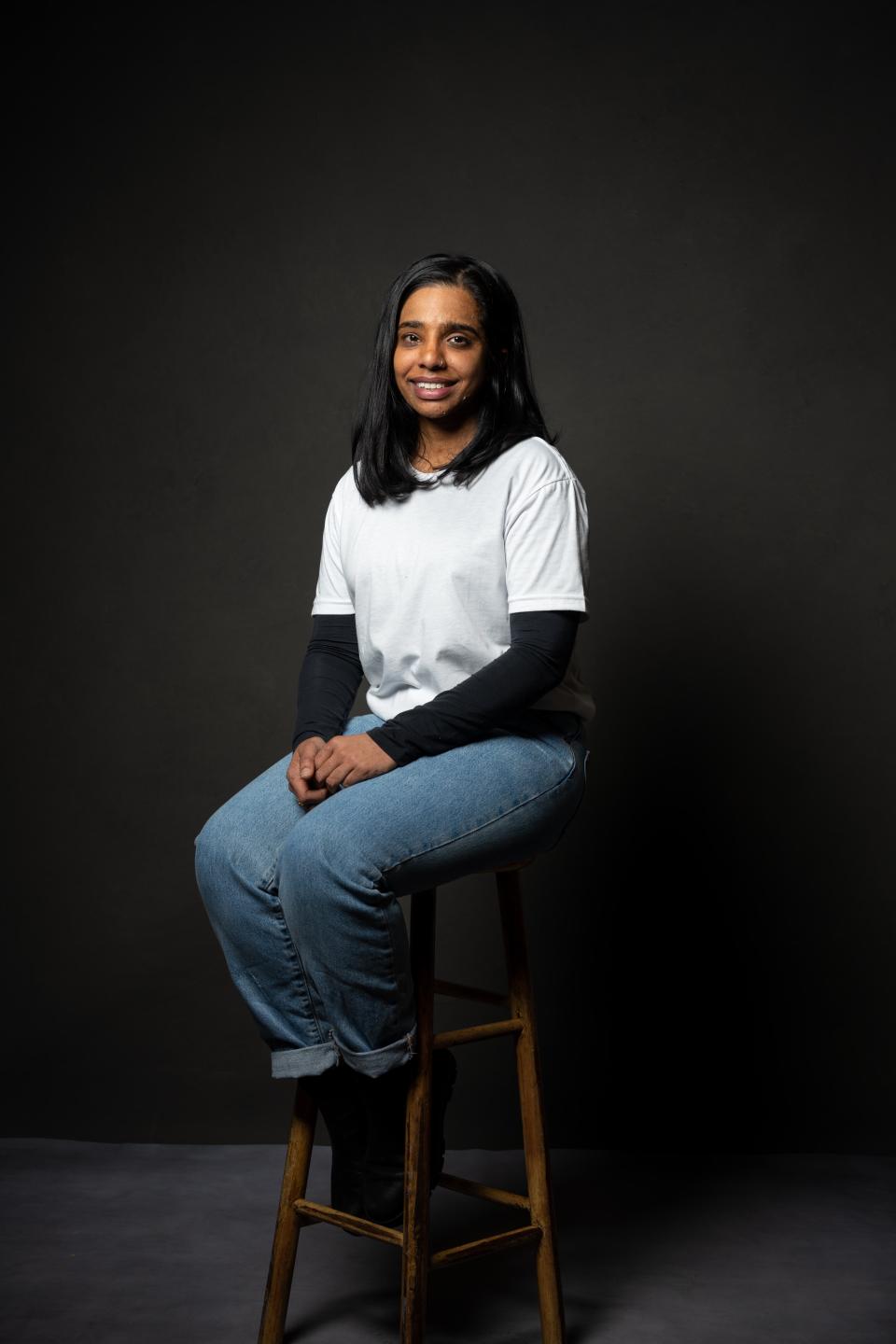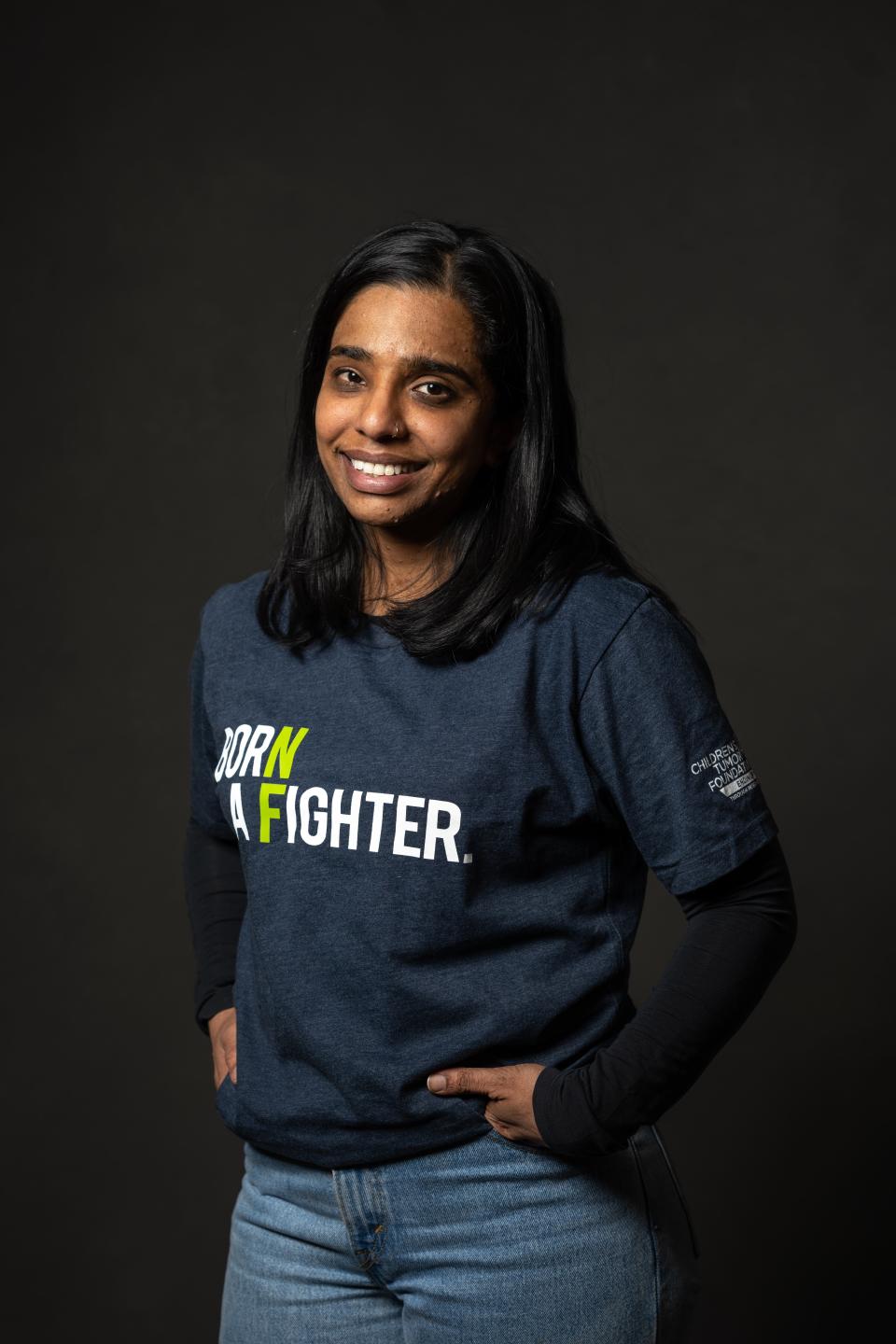A stranger filmed me without my consent and put it on TikTok. I stood up for myself – and won.
I've been running from my genetic condition my entire life. But TikTok caught up to me – and made me famous for the thing I disliked most about myself.
It was a regular day. I hopped on the New York subway for my usual commute. As I sat talking on my phone, I didn't notice the stranger filming me.
Days later, my sister called. There was a video of me on her TikTok feed. I opened the app and watched in horror as the video focused in on the small, raised tumors that cover my entire body. The post had a monkey emoji and a question mark, seeming to suggest I was riding the train with a case of monkeypox – the contagious virus characterized by pustules that appear on the skin.
I don't have monkeypox. I have neurofibromatosis type 1, or NF1, a condition that causes tumors to grow on my nerve endings. It's not contagious. But it has caused me years of mental and physical pain. And I've been trying to hide it since I was diagnosed at age 8.
Opinions in your inbox: Get exclusive access to our columnists and the best of our columns
There was no hiding the fact that I was the woman in the TikTok. As I scrolled through the comments on the video – which ranged from offering kindness and support to lambasting me for wearing shorts and threatening physical violence – I faced a decision that others who have been bullied on social media have had to make: Do I let it go? Or stand up for myself?
I chose the latter.
In fighting back, I found community
I decided I wouldn't let one person reverse all my hard work toward accepting myself, NF and all. I made a TikTok of my own, explaining my condition and the struggles I've faced because of it. The video went viral. It now has more than 1.4 million views.
I never wanted to speak out about my NF. I'm a private person who fully appreciates the anonymity afforded by our digital culture. But this experience has forced me into the limelight.
Can we just be honest?: It's time to ghost social media and the billionaires who run it
What is Section 230?: How two Supreme Court cases could break the internet as we know it
I've talked about my NF more in the past few months than in my entire life. My viral moment made me a spokesperson for my disease almost overnight. And it has opened my eyes to what I was missing by trying to distance myself from NF – which also meant distancing myself from the community of people affected by it.
Roughly 2.5 million people around the world live with NF. After my viral moment, many reached out to me to share their experiences. I've also connected with organizations like the Children's Tumor Foundation, which raises awareness about NF and supports research into cures.

I wanted nothing to do with this community for most of my life. I was content to try to forget my disease. But over recent months, strangers with NF – as well as people with other visible skin conditions – have welcomed me with open arms.
Many of them have verbalized the trauma of having an irreversible and obvious skin condition. In addition to the physical symptoms, individuals with visible skin conditions bear a wide array of psychological burdens, from depression and social isolation to low self-esteem and low quality of life. All too often, they experience stigma, have difficulty forming relationships or become anxious in social situations. Some even choose to avoid social situations altogether.
Opinion alerts: Get columns from your favorite columnists + expert analysis on top issues, delivered straight to your device through the USA TODAY app. Don't have the app? Download it for free from your app store.
From my nightmare came healing
Leaning on the NF community for support has helped me come to terms with my own trauma, which I've worked so hard to suppress throughout my life. It's helped me cope with my worst nightmare coming true. And it has taught me that needing people isn't the weakness I once thought it was.
Want to improve your mental health?: Helping others can be a good way to help yourself
It's OK not to be OK: Erasing stigma of mental illness is a big step toward healing
More than 40% of American adult internet users report having been bullied online at some point. Some studies suggest that people with visible skin conditions face a disproportionately high risk of bullying, which often has a harmful psychological fallout.
Being harassed can be especially isolating and frustrating when bullies focus their vitriol on a physical condition that's outside of your control. It can be tempting to deal with the hatred alone, or simply brush it off and move on to avoid showing weakness.
But admitting you need support can actually give you strength.

That's something I've learned since my unwanted moment of TikTok fame. When I embraced the NF community, I embraced more of myself. Even though there's so much more to me than my disease, fully accepting it as part of who I am has made me feel more whole.
I never expected to be an advocate for people with NF, but now, I have ambitions in this role. I want to help others feel the self-acceptance and strength that everyone deserves to know.
Lilly Simon is an advocate for neurofibromatosis patients and a business affairs coordinator based in New York City.
You can read diverse opinions from our Board of Contributors and other writers on the Opinion front page, on Twitter @usatodayopinion and in our daily Opinion newsletter. To respond to a column, submit a comment to letters@usatoday.com.
This article originally appeared on USA TODAY: Stranger filmed me without consent, put it on TikTok. Here's how I won

